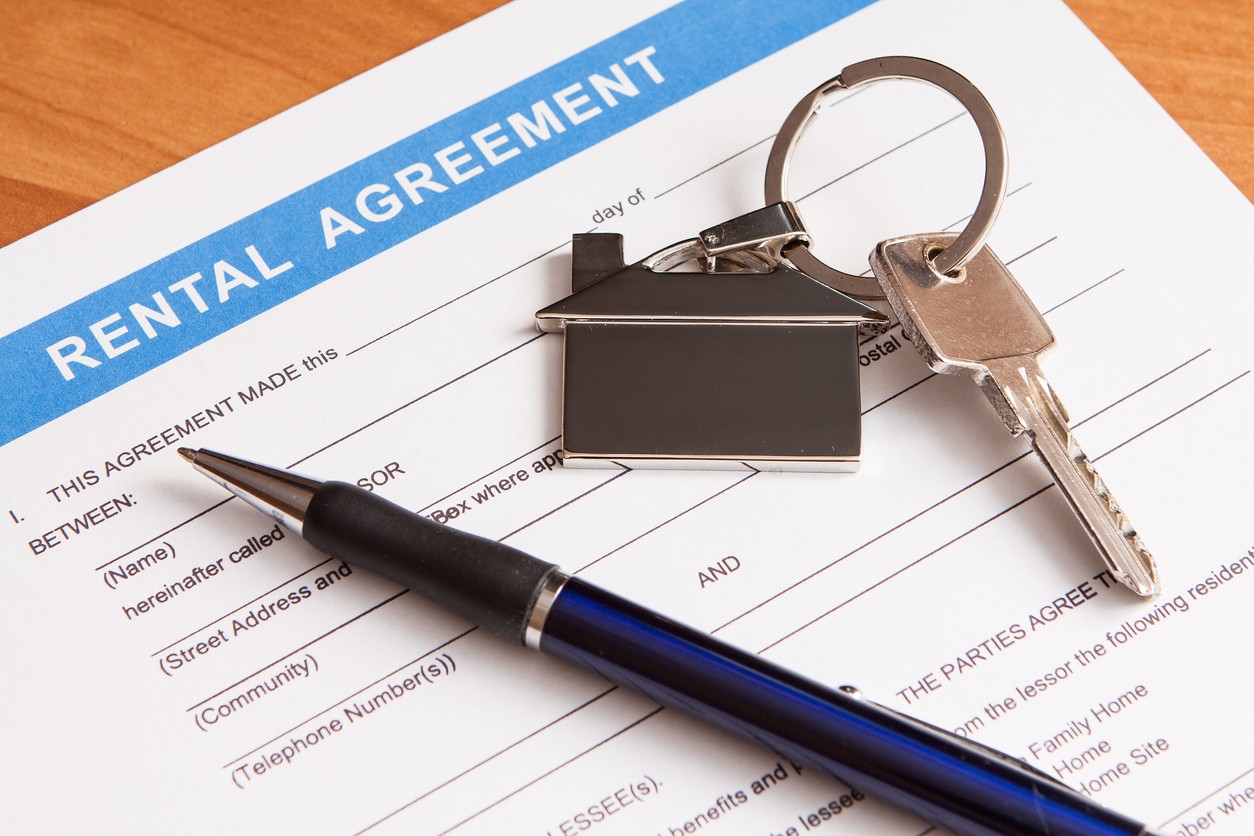
Discover the best tips for screening tenants for your rental property in this comprehensive guide for tenant screening.
Tenant screening is a vital process for any property owner looking to ensure they find the right tenant for their rental property. It involves evaluating a prospective tenant's background, including their financial stability, rental history, and criminal record, to ensure they are reliable and will fulfill their lease obligations. By thoroughly vetting applicants, landlords can avoid issues such as late rent payments, property damage, or violations of the lease agreement.
A solid tenant screening process is designed to protect property owners from potential risks while ensuring fairness and compliance with fair housing laws. It also gives landlords the opportunity to assess whether the applicant has a steady income, a positive rental history, and a clean background. Ultimately, screening helps identify responsible tenants who will respect the property, pay rent on time, and comply with the lease terms.
In this comprehensive guide, we’ll dive deeper into the tenant screening process, covering everything from background checks to the legal considerations landlords must keep in mind. By the end, you’ll have a clear understanding of how to confidently screen applicants and secure a reliable tenant for your rental property.
Understanding the Tenant Screening Process

The tenant screening process is a critical step in finding a reliable tenant for your rental property. A structured approach ensures that every applicant is thoroughly evaluated, reducing the risk of future complications. Below, we break down the essential stages of a comprehensive tenant screening process.
Rental Application
The first step in tenant screening begins with a detailed rental application. This document should gather key information from the prospective tenant, such as their full name, current address, contact information, and employment details. Additionally, the application should request information about the applicant's rental history, income, and references, especially from previous landlords. The rental application serves as the foundation for the screening process, offering an initial snapshot of the tenant’s background.
Background Check
A thorough background check is one of the most critical components of tenant screening. This includes verifying the applicant’s criminal record, credit history, and any past evictions. A criminal background check helps identify any potential red flags that may indicate risks to the property or other tenants. Similarly, a credit report offers insight into the applicant's financial responsibility, revealing any outstanding debt, poor credit scores, or late payments. The goal here is to assess whether the tenant has a history of handling financial obligations and maintaining a responsible lifestyle.
Income and Employment Verification
Ensuring that a tenant has steady income is essential to guarantee that they can meet their rental payments. Employment verification, often paired with proof of income such as recent pay stubs or tax returns, provides peace of mind that the applicant has the financial stability required to meet the monthly rent. Generally, it’s recommended that a tenant's income be at least three times the rent to minimize the likelihood of late or missed payments.
Previous Landlord References
One of the best ways to learn about a potential tenant is through references from their previous landlords. Reaching out to these references can provide valuable insights into the tenant's behavior, reliability, and treatment of the property. Questions to ask include whether the tenant paid rent on time, took care of the property, and adhered to the terms of the lease agreement. Positive feedback from a previous landlord can be a strong indicator that the tenant will continue to be responsible in their next rental.
By following these essential steps in the tenant screening process, landlords can gather the information needed to make an informed decision. This not only reduces the chances of selecting a problematic tenant, but also sets the stage for a smooth and successful rental experience.
Legal Considerations: Fair Housing Laws and Tenant Screening

Tenant screening is not just about collecting data on a prospective tenant—it also involves adhering to various legal requirements to ensure a fair and compliant process. Landlords must carefully navigate these legal considerations to avoid potential violations of fair housing laws, which protect applicants from discrimination based on race, gender, religion, disability, or family status, among other characteristics. Here's what property owners need to know to ensure their screening process is both legal and ethical.
Overview of the Fair Housing Act
The Fair Housing Act (FHA) is a federal law that prohibits discrimination in housing-related activities, including tenant screening. This means that during the screening process, landlords must evaluate each applicant based solely on relevant criteria like rental history, income, and background checks, without making decisions based on protected characteristics. Failing to comply with these regulations can lead to legal penalties, so it’s essential to keep the screening process objective and focused on factors that directly impact the applicant’s ability to fulfill lease obligations.
Complying with Local and State Regulations
Beyond federal law, local laws also play a significant role in tenant screening. Different regions may have specific regulations that govern what types of information landlords are allowed to consider when screening tenants. For example, some jurisdictions have restrictions on how criminal history can be used in the decision-making process. It’s crucial for landlords to familiarize themselves with the local laws in their area to ensure full compliance and avoid unintentional discrimination or bias during the screening process.
Criminal Background Checks and the Fair Housing Act
While criminal background checks are a common part of tenant screening, landlords need to be mindful of how they use this information. The Fair Housing Act does not explicitly prohibit criminal background checks, but it does prevent landlords from using blanket policies that automatically disqualify applicants based on a criminal record. Instead, landlords should consider the nature and severity of the crime, the time since the offense occurred, and whether the applicant has demonstrated rehabilitation. This ensures that decisions are made fairly and with consideration of the individual’s circumstances.
Avoiding Discrimination in the Screening Process
To protect both the landlord and the tenant, it’s important to establish clear rental criteria and apply them consistently across all applicants. This includes setting standard guidelines for acceptable credit scores, income levels, and rental history. By ensuring that every applicant goes through the same process, landlords can demonstrate that their decisions are based on legitimate concerns about the applicant’s ability to meet rental obligations, rather than any discriminatory practices.
Documenting the Screening Process
Maintaining documentation throughout the screening process is critical for legal protection. This includes keeping records of rental applications, background check results, and communication with prospective tenants. Should any legal challenges arise, having a clear record of how each decision was made helps demonstrate that the landlord followed fair housing laws and treated each applicant equitably.
By understanding and complying with fair housing laws, landlords can protect themselves from legal risks while ensuring a fair and transparent screening process. This not only helps to avoid discrimination, but also promotes the selection of tenants who will contribute to a positive and respectful rental environment.
Essential Criteria for Screening a Reliable Tenant

Finding the right tenant requires looking beyond basic information. A thorough tenant screening process should evaluate key factors that indicate whether a prospective tenant will be responsible, respectful, and reliable. Below are the essential criteria landlords should focus on when screening applicants to ensure a smooth and successful tenancy.
Credit Check: Financial Responsibility
A credit check is one of the most telling indicators of a tenant's financial stability. By reviewing the applicant’s credit history, landlords can assess whether the tenant has a track record of paying their bills on time. Key factors to consider include their credit score, any outstanding debt, and past due payments. A strong credit report can signal that the prospective tenant is likely to make rent payments consistently and on time. However, landlords should also be cautious of disqualifying applicants solely based on credit, as circumstances like medical debt or temporary job loss can affect scores.
Eviction History: Avoiding Red Flags
A tenant’s eviction history is another crucial factor to examine. A history of evictions may indicate a pattern of lease violations, late payments, or conflicts with previous landlords. It’s important to ask applicants about any past evictions and consider their explanation before making a final decision. A single eviction due to unusual circumstances may not be a dealbreaker, but a repeated pattern is a red flag that the applicant might not be the right tenant for your rental property.
Income Verification: Ensuring Financial Stability
Verifying an applicant’s income is essential to ensure they can comfortably afford the rent. A general rule is that a tenant’s monthly income should be at least three times the rent amount. This provides a buffer for the tenant to cover other expenses while still being able to pay rent. To confirm income, landlords can request documents like pay stubs, tax returns, or employment verification from the applicant’s current employer. This step helps ensure that the tenant has a steady income and won’t struggle to meet their financial obligations.
Criminal Background Check: Assessing Risk
While criminal background checks are an important part of the screening process, landlords should use this information responsibly and in compliance with fair housing laws. It’s important to evaluate the nature and severity of any criminal offenses, as well as how much time has passed since the offense occurred. Minor offenses or those that happened many years ago may not necessarily disqualify a potential renter. The key is to ensure that the applicant poses no significant risk to the safety and well-being of other tenants and the property.
Previous Landlord Feedback: Learning from Past Rentals
Contacting a prospective tenant’s previous landlords can provide valuable insights into their behavior and reliability as a tenant. Ask questions about whether the tenant paid rent on time, took care of the property, and followed the terms of the lease agreement. A positive reference from a previous landlord is often a strong indicator that the tenant will continue to be responsible in the future. Conversely, if a previous landlord shares concerns about the applicant’s behavior or payment history, it may be a sign to proceed with caution.
By focusing on these essential screening criteria—credit check, eviction history, income verification, criminal background check, and previous landlord feedback—landlords can make informed decisions and reduce the risks associated with selecting the wrong tenant. Ultimately, this thorough evaluation process helps identify tenants who will respect the property and uphold their lease agreement.
Final Steps: Selecting the Right Tenant and Moving Forward

After completing the tenant screening process and gathering all relevant information, the final step is selecting the right tenant for your rental property. This decision is crucial and requires careful consideration of all the screening criteria you’ve evaluated. By this stage, you should have a clear idea of which applicant best fits your rental criteria and who is most likely to be a responsible tenant. Here’s how to move forward with confidence:
Reviewing Screening Results and Making the Decision
Once all the checks—rental application, background check, credit report, income verification, and previous landlord references—are complete, it’s time to review the results holistically. Compare each applicant against your established rental criteria to ensure they meet the necessary requirements. Be sure to balance all aspects of the screening process, giving weight to financial stability, rental history, and background checks. The goal is to select an applicant who demonstrates reliability, a strong rental history, and the ability to meet rent payments consistently.
If multiple applicants meet your criteria, consider factors like their communication during the application process or their willingness to comply with your rental terms. It’s essential to keep your decision transparent and based on objective factors, avoiding any biases that could lead to discrimination.
Transparency and Communication with Applicants
Once you’ve made your decision, it's important to communicate clearly with all applicants. Notify the selected tenant and provide them with the next steps, which may include signing the lease agreement and submitting a security deposit. At the same time, it’s courteous to inform the other applicants that they were not selected, keeping the process respectful and professional.
For the chosen tenant, this is also the time to set clear expectations regarding the terms of the lease agreement, maintenance responsibilities, and any rules about the rental property. A well-communicated agreement helps prevent misunderstandings down the road and establishes a positive landlord-tenant relationship from the start.
Finalizing the Lease Agreement
The lease agreement is a legally binding document that outlines the rights and responsibilities of both the landlord and the tenant. It should include important details such as the rent amount, due dates, security deposit, lease duration, and any property-specific rules or regulations. Before finalizing the agreement, ensure that both parties fully understand the terms and agree to them.
Once the lease agreement is signed, you’ll want to collect the security deposit and any initial rent payments. Make sure all documentation is stored properly for future reference, as this will be critical if any disputes arise during the tenancy.
Why Choose Professional Property Management?
While tenant screening is a necessary part of renting out property, it can also be time-consuming and complex. This is where a professional property management company like Mt. Bachelor Property Management can be invaluable. With expert knowledge of local laws, fair housing regulations, and screening best practices, a property manager ensures that the entire tenant screening process is handled efficiently and legally.
At Mt. Bachelor Property Management, we take care of every step in the tenant screening process—from rental applications to background checks and income verification. Our team has extensive experience in finding reliable tenants who will respect your property, pay rent on time, and comply with lease agreements. By entrusting this process to professionals, you not only save time, but also reduce the risks associated with selecting the wrong tenant. Contact us today to get started with our property management services!
With a thorough tenant screening process in place, you can move forward with confidence knowing that you’ve chosen a responsible tenant for your rental property. A reliable tenant helps ensure a smooth, hassle-free rental experience, reducing the chances of late payments, property damage, or disputes. Whether you manage your property on your own or seek the support of a professional property management team, following these steps will set the foundation for a successful rental experience.




